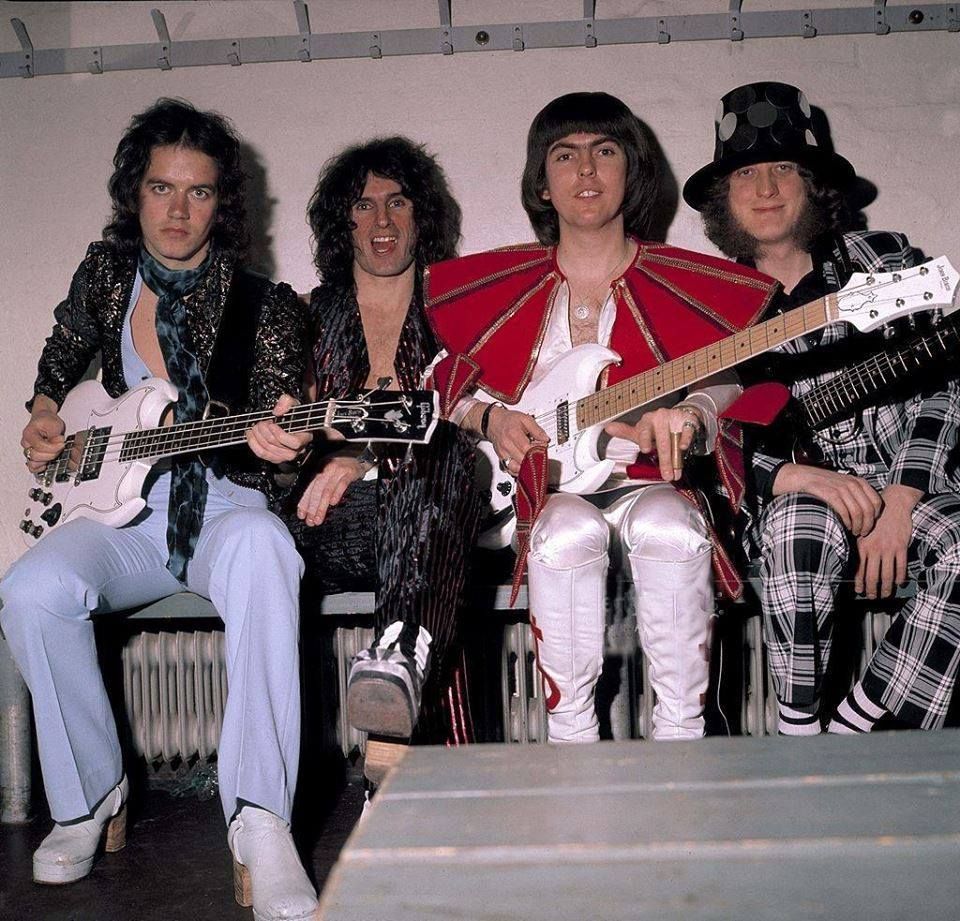
Slade’s “I Don’t Mind”: A Poignant Reflection on Unrequited Love and Enduring Hope
Ah, Slade. Just the name conjures up a whirlwind of glitter, platform boots, and anthemic singalongs that defined a generation. But amidst the boisterous stompers and joyous rock ‘n’ roll, there were moments of surprising tenderness and introspective beauty. One such gem, often overshadowed by their more raucous hits, is the deeply moving “I Don’t Mind.” Released as a single in 1974, it gently climbed the UK charts, reaching a respectable No. 49. While it might not have been a chart-topper in the vein of “Cum On Feel the Noize” or “Merry Xmas Everybody,” its more modest commercial performance belies its profound emotional resonance and enduring appeal, particularly for those of us who remember the era.
This wasn’t your typical Slade offering, all shout-it-from-the-rooftops exuberance. Instead, “I Don’t Mind” offered a rare glimpse into a more vulnerable side of the band, a quieter contemplation amidst the clamor. The story behind the song is a rather poignant one, reflecting the universal ache of loving someone who may not fully reciprocate those feelings. Written by the powerhouse songwriting duo of Noddy Holder and Jim Lea, it’s rumored to have sprung from personal observations of relationships within their circle, perhaps even from their own lives, though the band members have always been somewhat reticent to pinpoint the exact muse. What is clear, however, is that it taps into a shared human experience: the quiet resignation, the wistful acceptance, and the persistent hope that accompanies a love that might remain unfulfilled. It’s about being there for someone, offering unwavering support, even when you know their heart might lie elsewhere. “I don’t mind if you go,” the lyrics confess, “I don’t mind if you stay,” a bittersweet acknowledgment of a devotion that transcends the need for possession.
For many of us who were coming of age in the 70s, this song spoke volumes. It wasn’t about teenage angst or rebellious declarations; it was about the subtle nuances of adult relationships, the quiet compromises, and the sometimes painful beauty of unselfish love. It captured that feeling of being a steadfast presence in someone’s life, a silent guardian, even when you crave a deeper connection. The lyrics, simple yet profound, painted a picture of quiet devotion, of putting someone else’s happiness above your own desires. “I don’t mind if you leave me,” Holder croons, “just don’t forget my name.” It’s a testament to the enduring power of affection, even in the face of potential heartbreak.
What truly elevates “I Don’t Mind” beyond a mere ballad is its gentle melancholy, infused with a characteristic Slade warmth. While the tempo is slower and the instrumentation more subdued than their usual fare, it still possesses that unmistakable Slade feel. The melody is instantly memorable, a flowing and emotive piece that perfectly complements Holder‘s heartfelt delivery. His voice, usually so powerfully raw, takes on a more tender, almost vulnerable quality here, conveying the quiet ache at the song’s core with remarkable sincerity. It reminds us that even the most bombastic of bands can produce moments of profound beauty and emotional depth, offering a richer, more nuanced experience for their listeners.
Looking back, “I Don’t Mind” stands as a beautiful anomaly in the Slade catalog, a quiet testament to their versatility and songwriting prowess. It’s a song that, for many, evokes memories of quiet evenings, first loves, and the often complicated dance of human connection. It’s a reminder that sometimes, the most powerful emotions are expressed not through grand gestures, but through quiet understanding and unwavering support. It’s a song to be savored, a tender whisper from a band known for its roars, and a timeless reflection on the enduring nature of love, even in its most challenging forms. For those of us who grew up with Slade, it’s a nostalgic trip back to a time when music could be both exhilarating and deeply moving, a true testament to the enduring legacy of Noddy, Jim, Dave, and Don.